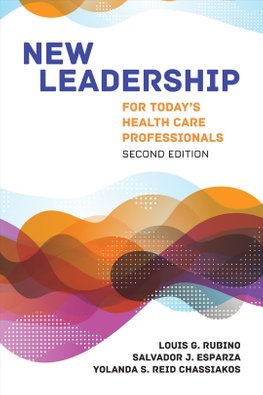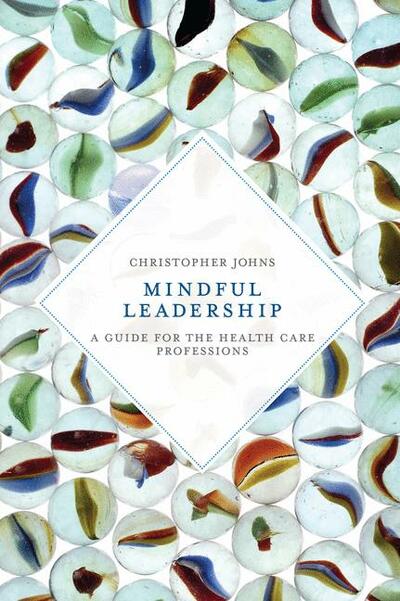NHS England funds £2million to boost system-wide leadership development
8th May 2019![]()
Excerpt from NHS England website announcement
“NHS England has funded a £2million programme to help 23 areas kick-start or boost leadership development activities to support and inspire workforce in health systems across England from GPs, consultants and therapists to nurses, social workers and managers.
The programme builds on learning from five successful leadership models: Frimley Health and Care 2020 Programme, Surrey Heartlands Academy, Fylde Coast 100 Systems Leader Programme, North Cumbria and Leading Greater Manchester.
Their results have shown the importance of equipping individuals with the right skills necessary to drive change and identify new ways of working and collaborating with health, social care and third sector organisations.
The funding will support systems to develop locally tailored programmes, investing in both newly established and experienced leaders to increase their system leadership capability.
They can do this in a number of ways including: growing a cadre of system leaders who are delivering integrated care at the coal face, building a pipeline of future leaders through mechanisms such as talent management, getting more people into leadership learning courses at all levels in a system, and creating networks of people with interests in leadership development who can inspire others, share learning with peers and problem solve.”
What happens when you make nursing a more attractive profession?![]()
The Health Foundation, 30th April 2019
Excerpt “Professor Linda Aiken is Director of the Centre for Health Outcomes and Policy Research, and Senior Fellow of the Leonard Davis Institute of Health Economics at the University of Pennsylvania.
She spoke at a recent Health Foundation event about how the US has tackled its nursing shortage over the last few decades, allowing nurses to provide the highest quality care while delivering better nurse satisfaction and retention. Her pioneering research has created an evidence base showing the importance of improving nurse work environments. We caught up with her to find out more.”
Read the comprehensive guide for improving staff retention, which has been updated for April 2019: Improving Staff Retention: A Guide For Employers![]()
Nuturing talent in your team ? How to support staff who are high achieving?
NHS Employers’s popular people performance management toolkit has been refreshed to include links to new guidance and resources.![]()
Workforce Stress and the Supportive Organisation – A framework for improvement through reflection, curiosity and change ![]()
Health Education England, 4th April 2019
Excerpt “encourages employers to take a closer look at the systems they currently have in place for managing staff wellbeing, it challenges them to give greater consideration to the impact workforce stress has on staff and look at the role they can play in providing better support to staff who may need It. ” ” It also talks about the impact of leadership, capacity and capability on workforce mental wellbeing and what employers need to consider.”
See also CIPD Health and Wellbeing at Work 19th report, also published in April 2019
Do We Have the Three Types of People Needed for Scale and Spread in the NHS?![]()
NHS Horizons, Ketley, D
8th May 2019
Developing the mindset of a successful leader![]()
In HPMA’s April 2019 Newsletter (Healthcare People Management Association)
HEAT (healthcare education and training) Awards![]()
Although nominations for the HEAT Awards are now closed, the shortlist will be announced on 20 May and all the shortlisted nominees and their nominators will be invited to an awards event held on 18 July in London.
Watch out for Leadership awards
- Inspirational Leader of the Year
- Emerging Leader of the Year
- System Transformation Champion of the Year (open to individuals and teams)
Today’s provider chief executive: Impact of the Aspiring Chief Executive Programme
April 2019![]()
“An independent study by the Institute of Employment Studies (IES) of the impact of first two cohorts of the national Aspiring Chief Executive Programme .”
“An evaluation of the NHS Leadership Academy’s Aspiring chief executive programme has highlighted themes around what makes an effective CEO and highlights tensions in the context in which they lead.”
Reports
Creating a culture of excellence How healthcare leaders can build and sustain continuous improvement![]()
KPMG
April 2019
Acas publishes guidance on workplace neurodiversity![]()
April 1st 2019, the ACAS webpage with the guidance is here
Excerpt ” Acas has published guidance to help employers learn about neurodiversity and to suggest changes that can be made in the workplace to better support neurodivergent staff. Neurodiversity refers to the way an individual’s brain works and interprets information. It looks at the fact that people think differently and have different interests and motivations.A “neurotypical” person is someone whose brain functions in the way society expects. A “neurodivergent” person is someone whose brain functions, learns and processes information differently. Examples of neurodivergence include autism, attention deficit disorders and dyslexia.
The Acas guidance emphasises that people think differently and that some individuals are naturally better at some tasks and poorer at others and, as the Acas guide points out, employers need to accommodate this difference in practical ways – ways that don’t patronise or disparage individuals.”
Kindness, emotions and human relationships: The blind spot in public policy![]()
Julia Unwin, Carnegie Fellow
Published in November 2018, so coming a bit late to the Knowledge Hub.
Cited in Can integrated care systems change how we work in the NHS?, Healthcare Leader, 29th April 2019.
Journal articles
Priorities and challenges for health leadership and workforce management globally: a rapid review![]()
Figueroa CA , Harrison R, Chauhan A and Meyer L
BMC Health Services Research 2019 19:239 -OPEN ACCESS
24 April 2019
Excerpt from abstract : “Health systems are complex and continually changing across a variety of contexts and health service levels. The capacities needed by health managers and leaders to respond to current and emerging issues are not yet well understood. Studies to date have been country-specific and have not integrated different international and multi-level insights. This review examines the current and emerging challenges for health leadership and workforce management in diverse contexts and health systems at three structural levels, from the overarching macro (international, national) context to the meso context of organisations through to the micro context of individual healthcare managers.”
Leadership perspective on the implementation of guidelines on healthcare-associated infections![]()
Hegarty J, et al. BMJ Leader 2019;0:1–9. – OPEN ACCESS
Excerpt from abstract : “d Leadership is a key component for infection prevention and control and plays an important role in the implementation of guidelines on healthcareassociated infections. A body of literature exists on healthcare workers’ perspectives on implementing these types of guidelines; however, there is a paucity of data on the leadership perspectives on implementation. This study aims to contribute to the evidence base of leadership perspectives”
Healthcare portraiture and unconscious bias![]()
BMJ Views and Reviews, BMJ 2019;365:l1668, 12th April 2019
Authors: Karthik Sivashanker, Harvard Medical School fellow in quality and patient safety, Kathryn Rexrode, chief, Nawal Nour, chief diversity and inclusion officer for faculty, trainees, and students, Allen Kachalia, senior vice president, patient safety and quality.
Women, healthcare leadership and societal culture: a qualitative study![]()
Journal of Healthcare Leadership, published April 2019 – OPEN ACCESS
Kalaitzi S et al
A study of women health care leaders’ challenges in Greece and Malta. See also
Exploring Women Healthcare Leaders’ Perceptions on Barriers to Leadership in Greek Context ![]()
Frontiers in Public Health, 09 April 2019
Developing culturally competent and compassionate healthcare leaders: A European model ![]()
Journal of Nursing Education and Practice, 2019, Vol. 9, No. 7 – OPEN ACCESS
Excerpt from abstract: “Methods: The development of this model is part of the IENE 4 EU funded project with participating countries: United Kingdom [Middlesex University, London], Spain, Cyprus, Romania, Italy, Denmark, Turkey. Its development is based on a) a needs assessment survey among healthcare leaders in the partner countries (N = 199), b) two round Delphi study with 14 experts and c) a focus group with healthcare leaders after the development of the model.
Results: The components of this model include the basic principles, values and skills that a health care leader should have as a role model and a coach of his/her staff in delivering compassionate and culturally competent care. This model was further used within the IENE 4 project, as a tool for creating learning tools, aiming to improve the quality of care within a cultural framework. Fourteen such learning tools were developed and piloted in all partner countries”
See also Output 1 of the IENE4: Report on integrative literature reviews on: -Universal components of compassion. -Measuring culturally competent compassion.
-Learning Culturally Competent Compassion in theory and practice.
Why men might be the answer to the staff shortfall![]()
Nursing In Practice, Launder M, 1st May 2019
Excerpt from full text: “The NMC found that just 11.4% of registered UK nurses in 2017/18 were men – barely improving on the 2007/2008 figure of 10.69%. The gender divide gets wider in general practice with men making up just 2.1% of practice nurses, according to NHS Digital data (see graph, page 22). The Universities and Colleges Admission Service, which administers the university application process, reported a slight increase in applications from men to study nursing this year, from 3,400 to 3,620. But that is a drop in the ocean compared with an overall decrease of 39.22% from 2010 to 2019. ” Article also looks at potential dangers of masculinising nursing.
Article cites research by Professor Heather Whitford at the University of Dundee who studied the under-representation of men on pre-registration nursing courses in Scotland in 2018. See final report of that research here
Can shared leadership enhance clinical team management? A systematic review![]()
Leadership in Health Services, Volume 32 Issue 2, May 2019 , pp. 309 – 335
Aufegger L et al
Successful work cultures: recommendations for leaders in healthcare![]()
Leadership in Health Services, Volume 32 Issue 2, May 2019, pp. 296 – 308
Vazquez, CE
Devolving healthcare services redesign to local clinical leaders: does it work in practice?![]()
Storey J , Holti R, Hartley J, Marshall M
Journal of Health Organization and Management 2019 March 28, 33 (2): 188-203
Article presents the findings arising from a three year research project.
Putting service back into health care through servant leadership![]()
Cottey L (Academic Clinical Fellow Emergency Medicine, University Hospitals Plymouth NHS Trust) and McKimm J (Professor of Medical Education and Director of Strategic Educational Development,Swansea University Medical School)
British Journal of Hospital Medicine 2019 April 2, 80 (4): 220-224
“Abstract: Servant leadership theory is little reported on in NHS leadership development strategies despite clear alignment with the core values underpinning health care for all. This article reviews the key concepts of servant leadership and suggests that it should be viewed as a core leadership style for those working in health-care organizations.”
Compassionate leadership in palliative and end-of-life care: a focus group study![]()
Hewison A, Sawbridge Y, Tooley L
Leadership in Health Services 2019 May 7, 32 (2): 264-279
The auhors are from School of Nursing, University of Birmingham , Birmingham, UK, College of Social Sciences, University of Birmingham and West Midlands Clinical Networks and Clinical Senate, NHS England, Birmingham, UK.
Excerpt from abstract : ” DESIGN/METHODOLOGY/APPROACH: Four focus groups involving staff from a range of healthcare organisations including hospitals, hospices and community teams were conducted to access the accounts of staff leading palliative and end-of-life care. The data were analysed thematically. FINDINGS: The themes that emerged from the data included: the importance of leadership as role modelling and nurturing; how stories were used to explain approaches to leading end-of-life care; the nature of leadership as challenging existing practice; and a requirement for leaders to manage boundaries effectively. Rich and detailed examples of leadership in action were shared.”




